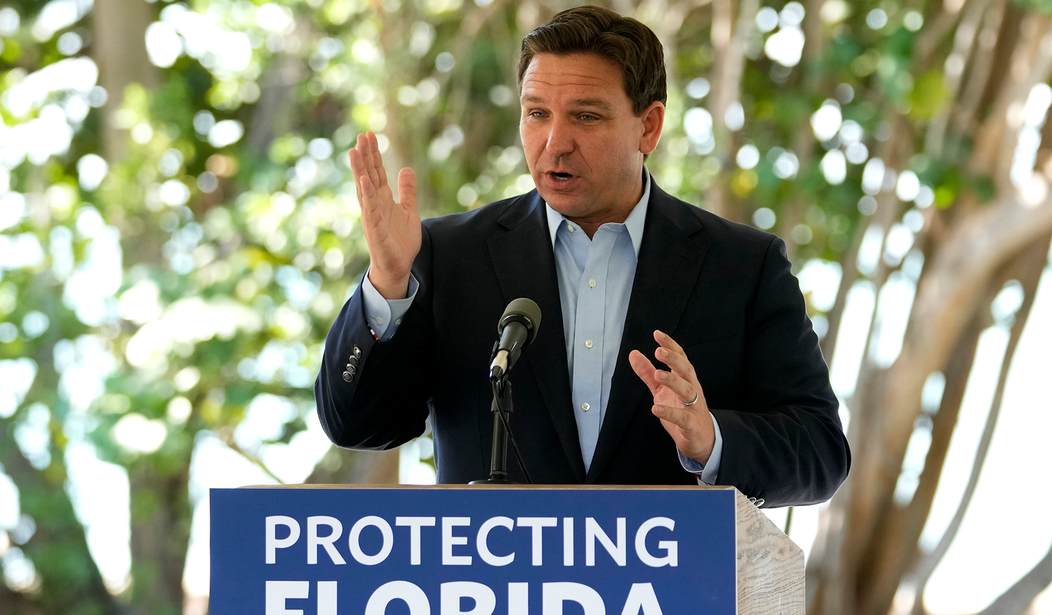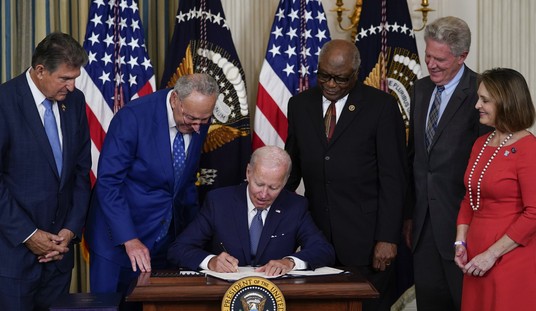In response to our coverage on this issue yesterday, DeSantis administration officials reached out to Townhall to further defend Florida's decision to reject the College Board's proposed 'African American Studies' Advance Placement (AP) course. The new curriculum is being tested in a pilot program underway in several dozen unidentified high schools across the country, though its contents have been kept out of public view -- even as states are being asked to approve it for wider introduction. Having reviewed it in depth, Florida informed the College Board that the course would not be permitted in Florida schools, barring significant changes:
This is the letter sent by the DeSantis administration to the College Board, informing them that a proposed new African American Studies AP curriculum runs afoul of FL law & has been rejected in its current form. We wrote about this yesterday: https://t.co/2Qm5rjdYsz pic.twitter.com/GfiftuwWoD
— Guy Benson (@guypbenson) January 20, 2023
"In the future, should College Board be willing to come back to the table with lawful, historically accurate content, FDOE will always be willing to reopen the discussion," the letter concludes. When the state threw down a similar gauntlet to textbook publishers over content deemed inappropriate or politically charged last year, alterations were made and the texts were ultimately approved. In our piece yesterday, we quoted National Review's Stanley Kurtz, who's reported critically on the proposed APAAS course, reaching this conclusion:
This curriculum would be presented to high schoolers, not college or graduate students. At the very least, public officials and parents should be able to see what would be taught to teenagers on certain charged topics. The secrecy, plus Kurtz's summary of what he's seen, plus Florida's rejection of the project are three meaningful data points in this debate.
We have now obtained a digital copy of the curriculum itself:
Recommended
Peruse those screen grabs & judge for yourself. I can understand concerns over how subjects such as “intersectionality and activism,” “black queer studies,” “postracial racism,” prison “abolition,” and the “reparations movement” (among others) may be presented to high schoolers.
— Guy Benson (@guypbenson) January 20, 2023
As noted in the tweet thread, much of the outline and course materials seem entirely appropriate, deeply interesting, and worthy of rigorous study. Black history represents an important part of our nation's history, including some very dark chapters of which students should be aware. Elements of unit four, however, may appear ripe for thumb-on-scale ideological indoctrination, depending on how any number of controversial and radical subjects are taught to teenagers. Gov. DeSantis' Press Secretary, Bryan Griffin, furnished an additional statement to Townhall -- which reads in part:
The Florida Department of Education has rejected the College Board’s AP African American Studies course because it lacks educational value and historical accuracy. As submitted, the course is a vehicle for a political agenda and leaves large, ambiguous gaps that can be filled with additional ideological material, which we will not allow. As Governor DeSantis has stated, our classrooms will be a place for education, not indoctrination. As the Department of Education has previously stated, if the College Board amends the course to comply, provides a full course curriculum, and incorporates historically accurate content, then the Department will reconsider the course for approval...Governor DeSantis has continually advocated for and ensured Florida’s schools utilize accurate, historical curriculum, including curriculum that factually portrays African American History. One example from his first term is HB 1213, passed and signed into law in 2020. This is a bill that requires all Florida students to learn about the Ocoee Massacre. Florida law requires instruction on African American history in K-12 education.
Here is the relevant section of existing Florida law:
Florida Statutes 1003.42 (h)
(h) The history of African Americans, including the history of African peoples before the political conflicts that led to the development of slavery, the passage to America, the enslavement experience, abolition, and the history and contributions of Americans of the African diaspora to society. Students shall develop an understanding of the ramifications of prejudice, racism, and stereotyping on individual freedoms, and examine what it means to be a responsible and respectful person, for the purpose of encouraging tolerance of diversity in a pluralistic society and for nurturing and protecting democratic values and institutions. Instruction shall include the roles and contributions of individuals from all walks of life and their endeavors to learn and thrive throughout history as artists, scientists, educators, businesspeople, influential thinkers, members of the faith community, and political and governmental leaders and the courageous steps they took to fulfill the promise of democracy and unite the nation. Instructional materials shall include the vital contributions of African Americans to build and strengthen American society and celebrate the inspirational stories of African Americans who prospered, even in the most difficult circumstances. Instructional personnel may facilitate discussions and use curricula to address, in an age-appropriate manner, how the individual freedoms of persons have been infringed by slavery, racial oppression, racial segregation, and racial discrimination, as well as topics relating to the enactment and enforcement of laws resulting in racial oppression, racial segregation, and racial discrimination and how recognition of these freedoms has overturned these unjust laws. However, classroom instruction and curriculum may not be used to indoctrinate or persuade students to a particular point of view inconsistent with the principles enumerated in subsection (3) or the state academic standards. The department shall prepare and offer standards and curriculum for the instruction required by this paragraph and may seek input from the Commissioner of Education’s African American History Task Force.
This is important information and context for when certain critics inevitably and falsely claim that Florida is 'banning' the teaching of Black history -- including real and important ugliness that reflects poorly on America's past and present flaws. I'll leave you with this:
This is big: the next step toward universal school choice in Florida. https://t.co/Cmawd1Yoz8
— Christopher F. Rufo ⚔️ (@realchrisrufo) January 19, 2023
























Join the conversation as a VIP Member